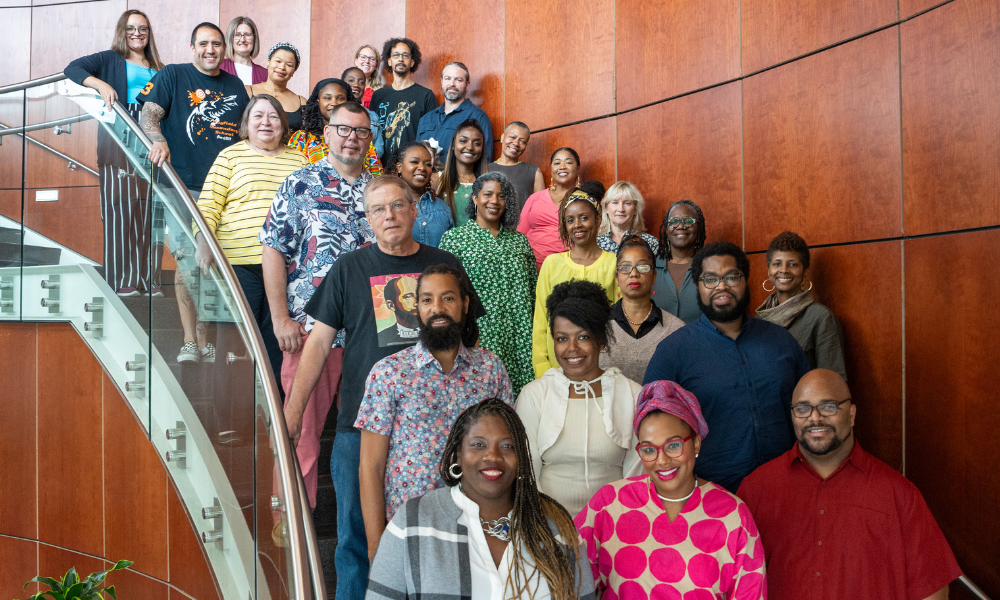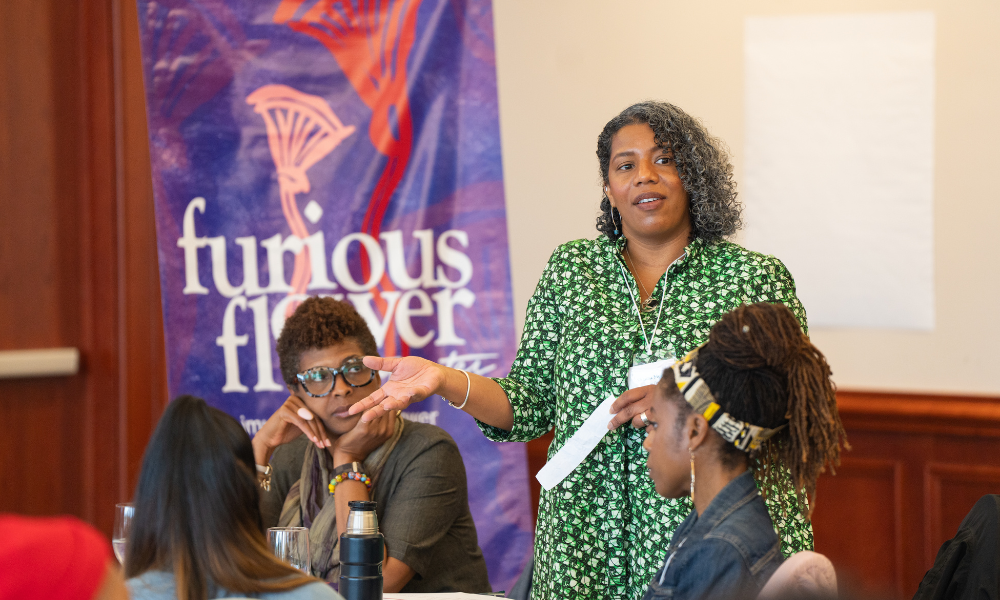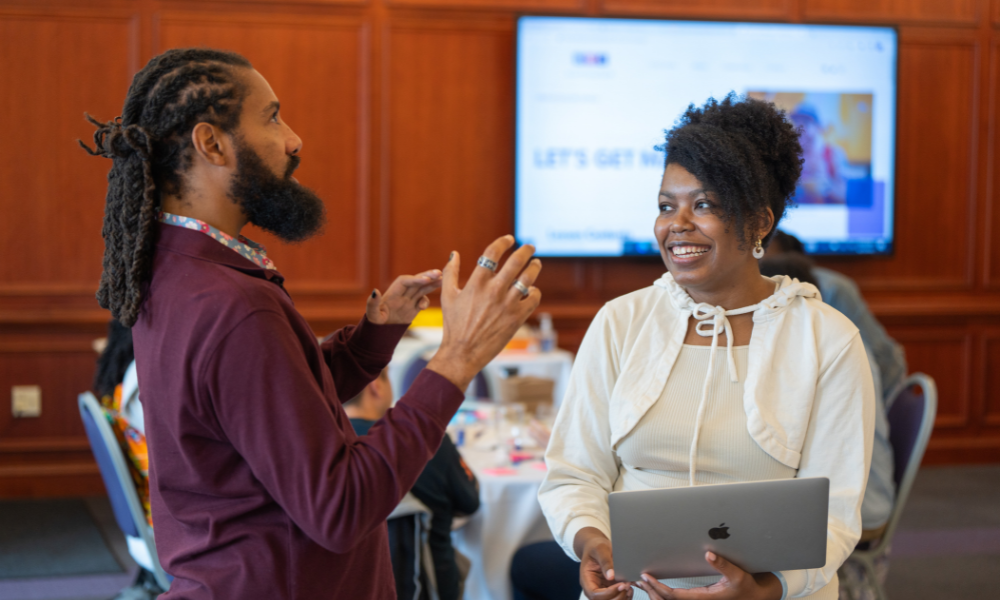Furious Flower Poetry Center hosts more than 20 scholars and poets to create an open-access curriculum
News
SUMMARY: Furious Flower Poetry Center and Furious Flower Advisory Board hosted 20-plus scholars and poets at James Madison University for a week to plan and construct the Furious Flower Syllabus, an open-access curriculum encouraging engagement with Black Poetry at all levels.
The Furious Flower Poetry Center, in partnership with the Furious Flower Advisory Board, hosted more than 20 scholars and poets at James Madison University in June to create an open-access curriculum for incorporating Black poetry into classrooms of all ages and levels. These pedagogical materials will be distributed to educators nationwide for free to encourage further engagement with Black poetry.
Participants working to create the open-access resource titled, Opening the World of Black Poetry: A Furious Flower Syllabus, were placed into groups based on the academic level for which the materials were intended, such as high school, undergraduate, graduate, and community education. In these groups, they collaborated on the creation of educational materials like unit plans, exercises, course projects, and more. The educators used Furious Flower resources such as the center’s archive, housed in JMU Special Collections and available online, as well as Furious Flower’s published anthologies of poetry. The education materials will be coalesced, edited, and published as an open-access digital text in PressBooks with the support and assistance of JMU Libraries.

Furious Flower Advisory Board chair McKinley Melton, Ph.D., stated that through the week the groups worked to build “a collaborative experience that is pedagogical in nature, but is ultimately rooted in the community that exists around Black poetry.”
“I see us as building opportunities and avenues for people to explore Black poetry in their classrooms, in their community centers, in the midst of various different gatherings where Black poetry can be the substance of the meeting but it can also be the springboard for all the things that can come from it,” Melton said. “We are building foundations upon which many other things will be built through the teaching and the learning and the engagement of Black poetry.”
Funded by a $50,000 Equity in Verse grant from the Poetry Foundation, one of the largest grants Furious Flower has secured, this project seeks to expand engagement with Black poetry by creating educational materials for coursework at all academic levels and resources that can be used by community groups.
Shauna Morgan, Ph.D., Furious Flower Advisory Board member, said that, for her, the open possibilities of the curriculum are the most exciting part of the work.
“We’re here creating something together, but it is something that can take shape and become all these many different things in the hands of different people. I love the possibility of that, of creating something that can then manifest into something that could impact our communities, students from [ages] zero to 100. I think that’s what’s most exciting: this is really the seed of something. And the seed itself serves a purpose, but that it can become so much more than that, that’s what’s really special.”

Lamar Wilson, Ph.D., a participant in the project, agreed: “We’re in a moment where we have the opportunity to really lift up and curate and provide resources for so many different people who don’t feel seen, who always—when they find our work — [realize] there’s a space for [them] in Black poetry; there’s a home for [them] in Black poetry. This resource, once it is open and on the Internet for people to find, there is no going back; there’s no going back from that. That’s the beauty of it. It will live forever.”
Poet and scholar, Teri Ellen Cross Davis, poetry programs manager for the Folger Shakespeare Library in Washington, D.C., reflected on the importance of the project:
“This project is incredibly important, especially now, in these politically charged times, when we don’t really have access to our full history. I think what this project can do is—through empathy, through poetry—we can learn more about each other, and we can learn what makes us human and how we have these connections, and how we need to explore and solidify these human connections between all people. I think it's important to do this at a time when we [collectively] don’t share the same knowledge of history.”
— Teri Ellen Cross Davis
Ariana Benson, 2022 Furious Flower Poetry Prize winner and participant in the project, echoed this optimism for the possibilities increasing engagement with Black poetry nationwide could provide: “Thinking about reach and access and how we can expand the bubble of Furious Flower to reach so many students beyond just the space of Harrisonburg and JMU, that becomes really important to me because I used the database and the archive to teach myself poetry during the pandemic when it was just me in my house by myself. I’d like to expand that accessibility for students of all walks of life, people who have made students of themselves. And my thinking is that Black poetry makes teachers of strangers and family of teachers. [...] Poetry is important because [it] may not stop a bullet, but it might make someone think twice about picking up a gun, and I truly believe that.”
With the help of JMU graduate assistant Iliana Cosme-Brooks, the materials created in June will be organized and are scheduled to be published in December as an open-access resource in PressBooks.
